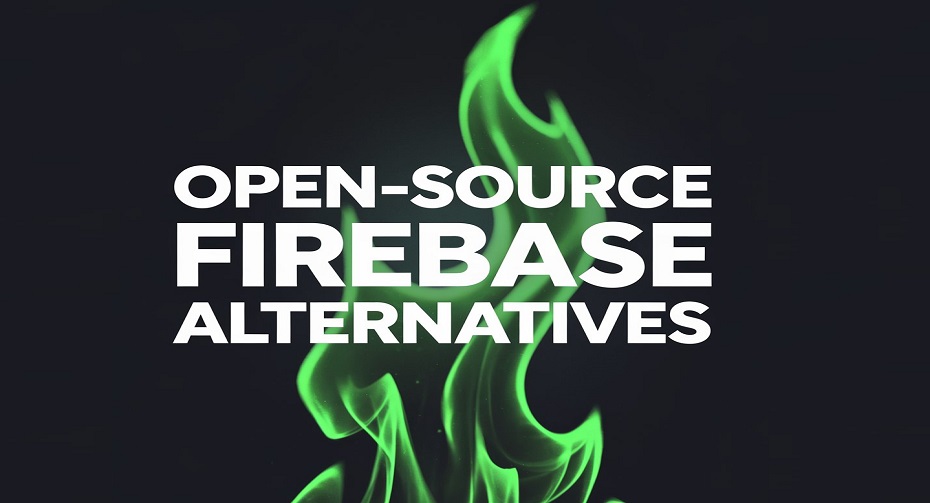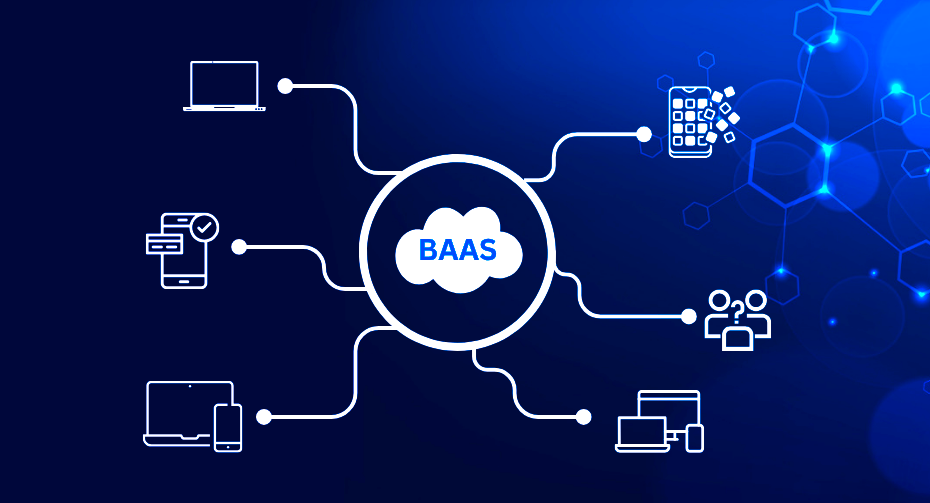With the powerful backing of Google, Firebase is an easy-to-access but closed-source cloud service provider (CSP). Indeed, Firebase is commonly considered a platform for building mobile and web applications at a rapid pace. But DevOps teams and established businesses also want to know what Firebase alternatives are available in 2025.
Therefore, this article is going to discuss one of the best open-source alternatives to Firebase that are still useful in 2025. By the same token, this guide will also present what exactly Firebase is and for which reasons you should see an alternative.
What is Firebase?
Firebase is a Backend as a Service (BaaS) platform that assists developers in quickly building, hosting, and launching web and mobile applications. Andrew Lee and James Tamplin introduced this computing platform in 2011 through a single product called ‘Firebase Realtime Database’. Withal, Firebase offers numerous products now and is divided into two categories: Build, and Run.
The popular products of Firebase are:
– Cloud Firestore
– Realtime Database
– Cloud Functions
– Authentication
– Cloud Storage
– Hosting
– Vertex AI
– Remote Config
– Data Connect
– Genkit
– Test Lab
– App Distribution
– Cloud Messaging
– A/B Testing
Firebase Usage
Although Firebase has some limitations, many online web and mobile applications are still running on Firebase. Likewise, BuiltWith confirms that 210k+ live websites on the internet utilize Firebase. Correspondingly, 3166 companies and 36691 developers claim to use Firebase for different tech stacks on StackShare.
Prominent clients of Firebase are Twitch, Instacart, Hotstar, Alibaba, The Economist and Onefootball.
Top 10 Firebase Alternatives in 2025
Here are the cloud platforms similar to Firebase but open-source:
1. AWS Amplify – Best Firebase Alternative
AWS Amplify is acknowledged as one of the best Firebase alternatives because of its full-stack development products. Amazon Web Services launched this cloud platform in 2017, and it has the ability to confer huge support to build the backend and client side of mobile and web applications. Similarly, the developer team can also benefit from the outstanding hosting of this CSP.
Core Features
DataStore – If you want a service like the Cloud Firestore of Firebase, you can simply consider the DataStore of AWS Amplify. This is basically a diverse storage engine that enables the programming teams to approach data through the powerful backing of GraphQL API in offline and online scenarios.
Authentication – Probably, the majority of DevOps teams prefer Firebase because of its credible authentication services. However, Amplify also doesn’t disappoint you hereof. Undoubtedly, it facilitates the users with ready-to-use authentication with the backing of Amazon Cognito.
Amplify Hosting – Businesses that are associated with Firebase because of its zero-downtime hosting can also try Amplify Hosting. In this regard, you just need to integrate the repository of your script with the console, and you can host the front and server sides of your app through a single commit.
API & Analytics – AWS Amplify displays well-examined analytics and insights by using Amazon Kinesis and Pinpoint. Therefore, you wouldn’t regret leaving Google Analytics that Firebase provides you. By the same token, Amazon API Gateway and AWS Lambda-like products ensure API support, such as Rest and GraphQL for users.
Amplify Storage – Whether you want to gather data files or want to conduct event-driven functions, Amplify Storage backs you completely. It comes with strong support for Amazon S3. So, you don’t have to worry about quitting the storage features of Firebase.
Pricing
Like Firebase, AWS Amplify also grants a free tier to its users with an always free opportunity. Here are the basic plans of this CSP.
Frontend UI – It is always free to use AWS Amplify to create user interfaces of mobile or web applications with AWS.
Backend – Although it is free to begin a backend development journey with Amplify but, things can change when you exceed the allotted limits. These charges depend on your usage of resources because Amplify follows a pay-as-you-go pricing model.
2. Back4App – One of the Best Open-Source Alternatives to Firebase
Back4App is another compelling open-source alternative to Firebase that started its services in 2015. This is basically a low-code CSP that is popular among the programming community because of its BaaS and Container services.
Companies and development teams can choose Back4App, a Firebase alternative because it can process more than 3.5 billion requests monthly. Correspondingly, if you want Firebase-like services with massive community support, then Back4App can again satisfy you with a community of 190K+ developers from more than 100 countries worldwide.
Features
Real-Time Database – Just like Firebase, Back4App awards businesses a real-time database to inquire and gather data spontaneously. In this regard, programming can also utilize SDKs, Rest, and GraphQL APIs to describe the data model.
Cloud Functions – This platform permits the developers to include business logic to backends using cloud code functions. For that reason, you can run the server-side script of your application without administering the hardware and servers.
Seamless Interface – According to startups and novice developers, they like to use Firebase because of its easy-to-understand and user-friendly interface. Fortunately, the interface of Back4App is seamless to utilize. You can even benefit from its BaaS dashboard without having technical expertise.
File Storage – It is also very smooth to store files and further data on the cloud through Back4App. You can connect this data with the database in a few clicks only. In addition, to support web3 projects, this BaaS provider awards businesses with a simple Blockchain Storage function.
Notifications & Authentication – To attain and retain the desired users, programmers can help with the push notifications feature of Back4App. By the same token, authentication is quite convenient through email or other social media platforms when you use this Firebase alternative.
Pricing
Back4App is known as one of the leading Firebase alternatives because it comes with a free-tier program where you don’t have to provide credit card details. Indeed, 25k requests, 1GB file storage, and 1GB transfer come under a free monthly plan. However, its paid plans are the following if you pay the platform on an annual basis:
MVP – The monthly fee of this program commences from $15. Under this package, you can benefit from 500k requests and 250GB data transfer.
Pay as you go – The cost of this program begins at $80/month, and you only have to pay for used resources.
Dedicated – This is a good option for SMEs or big businesses, and its starting cost is $400/month.
Enterprise Edition – Back4App designed this program for large enterprises. This vendor didn’t disclose the pricing of this plan, but you can contact the sales team for further queries.
3. Supabase
Supabase is another trusted platform in our list that calls itself an open-source alternative to Firebase. You can also name it one of the newest cloud service providers similar to Firebase because it launched in 2020. Indeed, with great scalability and documentation support, Supabase could be an ideal option.
It doesn’t only confer robust backing for frameworks like React, Next.js, Vue, and Flutter but tutorials of web and mobile apps are also reachable on the ‘Docs’ page of Supabase.
Core Features
Database – Supabase relies on a trusted and open-source database called Postgres. This SQL database enables the coders to extend and transfer the data anytime, anywhere. Similarly, businesses can enable real-time subscriptions and queries with this database.
Edge Functions – This characteristic of Supabase allows the teams to deploy an application with great scalability in 29 regions of the world. These functions are also very useful for conducting all backend activities.
Storage – Whether you want to store a small file or a massive number of large files, you will find Supabase ultralight and interoperable. In this regard, you can’t only use the drag-and-drop feature to store data but can also preview your media files.
Realtime Changes – Users can simply perform the real-time changes even within milliseconds. Especially it helps the users to create and deploy modern applications.
Pricing
This easy to customizable service like Firebase, offers three types of plans, including the free tier:
Free – Supabase is popular among the developers’ community because of its affordability. Yes, you can approach 50k monthly users, 500MB database, 2 GB bandwidth, and 500k edge functions without paying anything. Withal, this plan is only for 2 projects.
Pro – The monthly cost of this plan commences from $25, and it offers you an 8 GB database and 2M edge functions.
Enterprise – If you want to build enterprise-grade applications, then you can consider this plan. You can discuss your requirements with the sales team and get a quote.
4. Backendless
Backendless is a no-code alternative to Firebase that comes with a powerful UI builder. In point of fact, Backendless empowers developers and businesses with a dynamic visual app builder to begin creating applications without having a script.
This Dallas-based vendor started its services in 2012, and now it is known as a prominent name when it comes to dealing with real-time backend and modern user interface. University of Pennsylvania, Dell, Vodafone, and StayShure successfully use Backendless for distinct tech stacks.
Core Features
Realtime Database – Realtime database empowers this visual app development platform. In this way, it facilitates the users and programming teams with real-time messaging and server-side data access. With this database, companies can administer the data, its security, and schema through a graphic browser.
Codeless – When you use Backendless, you don’t have to worry about writing complex scripts because it is an entirely codeless platform.
User Management – The user management APIs of Backendless are phenomenal because they free you from the worries of signup, authentication, and further registration problems.
Caching – You can fasten the server-side operations of your application with the caching API of Backendless. It has the ability to gather your short-lived data on an in-memory cache.
Pricing
There are three comprehensive plans for this BaaS vendor: Backendless Cloud, Pro, and Managed. But it only opened the pricing details of Backendless Cloud in this regard. Here are the key components of Backendless Cloud pricing:
Free Plan – This costless offering comes with 1GB file storage, 50 API req/min and 20 DB tables.
Scale Plan – With a monthly billing of $15+, you can conduct unlimited monthly requests and get 100 DB tables and 10GB file storage.
5. Appwrite
If you need a self-hosted alternative to Firebase, then consider Appwrite. This free and open-source app development platform has 46.7k repository stars and 4.2k forks on GitHub. This Firebase-like service is an ideal CSP for your Python, PHP, Ruby, Flutter, Cloud, Apple, Web, Android, Swift, and Kotlin projects.
Core Features
Database – The management, storage, and access to data occur in the meantime when you use Appwrite. This facility is open to all subscribers of this CSP.
Functions – Appwrite grants highly extensible and serverless functionalities to back your projects based on multiple languages.
Security – To confer a highly protected environment, Appwrite provides SSL certification, Role-based access control (RBAC), and audits to businesses.
Storage & Authentication – With reliable storage features, you will also find a variety of authentication practices while using Appwrite.
Pricing
Appwrite permits the development to benefit from its open-source version without paying anything. However, its official website also declares that it will share the pricing details for Appwrite Cloud soon.
6. Parse
Parse is another big name among free Firebase alternatives. It is a full-stack app development platform that empowers programmers to build and deploy applications at a fast pace. With more than 38k+ stars and 17k+ repository forks on GitHub, Parse is a trusted Firebase-like cloud service provider.
Core Features
Community Support – If Firebase comes with the backing of Google, then Parse is also tested and trusted by Facebook. Yes, Facebook is the parent company of Parse. Therefore, it has a big community. You can find resources and solutions regarding Parse on GitHub, Stack Overflow, and several other programming forums.
SDKs & Libraries – It is smooth to approach source-open libraries of Parse for all your projects, including Swift, Flutter, Dart, Android, Unity, and PHP.
Documentation – If you are willing to use this platform to deploy your servers, it is convenient to access detailed documentation with useful guides.
Pricing
Parse Platform is free to use. Withal, if you combine it with other platforms like Back4App, you will have to pay for other vendors.
7. Deployd
Deployd is another open-source Firebase-like platform that doesn’t require signup or registration. Yes, Deployd enables businesses to create, deploy, and extend APIs for various web or mobile applications. It takes only 4 steps to build and step up such applications.
Core Features
Open-Source – Deployd operates under Apache 2 license. So, if you have this license, you can smoothly utilize this open-source platform.
Support for Static File – It is convenient to host static JS, files, HTML, and further resources using Deployd. In this regard, you just need to add such static assets to the public directory.
Works with Registration – Compared to Firebase and its other alternatives, DevOps teams don’t have to register on Deployd because it works without any signup process.
Pricing
Like Parse, Deployd is also a freemium CSP. You can install Deployd from the homepage of its official website.
8. Heroku
If you want more control over your tech stacks’ particular backend operations, then Heroku should be your choice. Heroku is a PaaS alternative to Firebase with exciting products like dedicated servers and databases.
Core Features
Powerful Backing – If you are impressed with Firebase because Google supports it, then Heroku could be an alternative because it has the backing of Salesforce. This California-based cloud company is definitely a big name in the computing world.
Heroku Postgres – The majority of businesses like Heroku because of its SQL database support. Yes, PostgreSQL as a service is an appealing product of this PaaS vendor with quick deployment approaches.
Easy Integration & Runtime – Integrating Heroku with GitHub to deploy applications on this CSP is superfast. Similarly, Heroku Runtime provides a fully managed, secure, and containerized environment to run your applications.
Pricing
Unfortunately, like other Firebase alternatives, Heroku has no free tier plan. There are different pricing models for its distinct products.
Dyno Types – To approach lightweight containers of Heroku, you will have to pay $5, $7, and $25 as a starting cost for Eco, Basic, and Standard 1x plans, respectively.
Heroku Postgres – The Mini plan starts from $5/month, and Shield 9 could go up to $16000/month.
9. Kuzzle
Users who are finding open-source BaaS, IoT, and PaaS alternatives to Firebase should choose Kuzzle. It is one of the simplest cloud service providers (CSPs) that could be an excellent choice to deal with smart city, logistics, building, and device sensor applications.
Core Features
Search Engine – The modern search engine of Kuzzle facilitates developers with better results and user interface.
Realtime Database Support – Realtime database support is another advantage of using Kuzzle BaaS services.
Pricing
Here are the major plans of Kuzzle:
Kuzzle Backend – It is free to install and use the Kuzzle backend for different projects.
Kuzzle PaaS – Users can subscribe to the Sandbox Starter under Kuzzle PaaS for €80/month.
Kuzzle IoT – You will have to contact the technical team to ask for a quote for Kuzzle IoT.
10. PubNub
PubNub is another new but advanced Firebase alternative in our list. It handles 3 trillion monthly calls with 99.999% uptime and accesses 800 million devices over the globe. The renowned customers of PubNub are Kustomer, vFairs, and Swiggy.
Core Features
Flexible to Use – It is very flexible to utilize PubNub with 65 ready-to-use integrations and SDK backing for more than 50 development platforms.
Solution Kits – PubNub provides a collection of solution kits to facilitate group chats, telehealth conversations, and live events. It is considered the best vendor for React and React Native applications.
Pricing
Here are three programs of PubNub:
Free – Using unlimited channels, devices, and connections under this plan is free.
Starter – The starting charges of this plan are $49/month, and it offers 100ms worldwide latency and 99.999% uptime.
Pro – It is suitable for large applications and enterprises. You can contact the technical team to learn more about this program’s pricing policy.
Reasons to Not Use Firebase
Firebase has many advantages, but because of these drawbacks, you can avoid using this cloud service:
Vendor Lock-in: It is hard to switch from Firebase to another CSP.
Closed-Source: It isn’t very easy to find resources and further support for Firebase because of its closed-source nature.
No Support for Relational Database: Users only find NoSQL database support on Firebase, which doesn’t back SQL database formations.
Limited to Google Cloud: You can only host Firebase on the top of Google Cloud products, and you can’t benefit from platforms like Amazon Web Services, Heroku, Parse, or Back4App.
Conclusion
This guide shares one of the leading open-source Firebase alternatives with viewers. You can surely try Back4App, Parse, AWS Amplify, Heroku, Appwrite, and Supabase as free-tier alternatives to Firebase.



